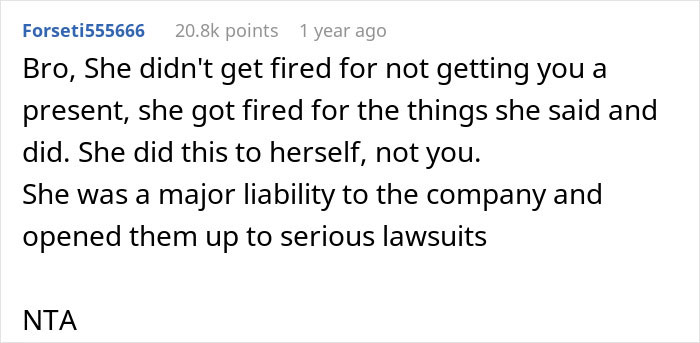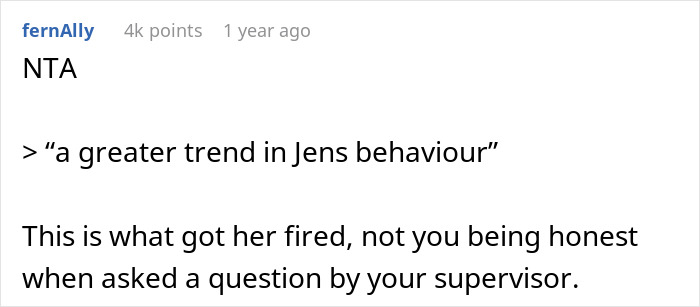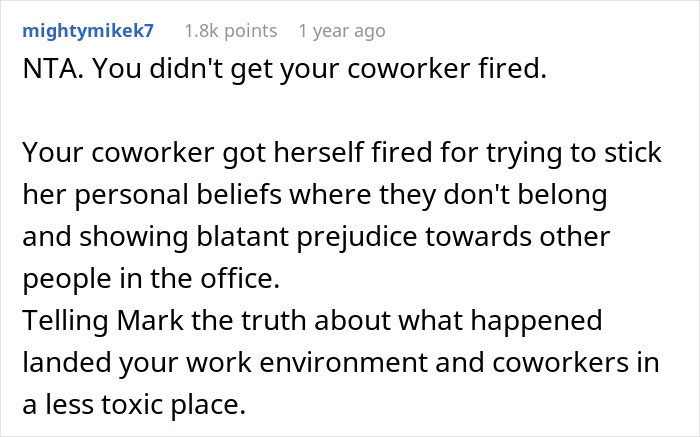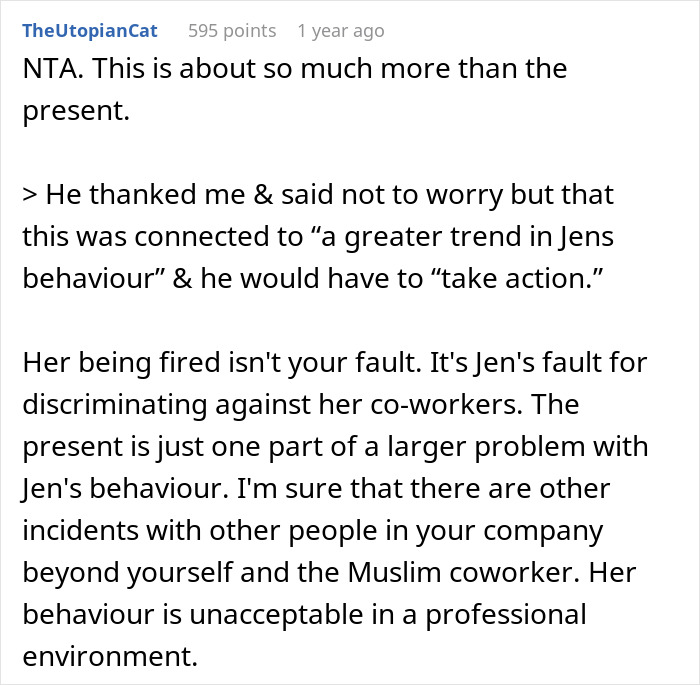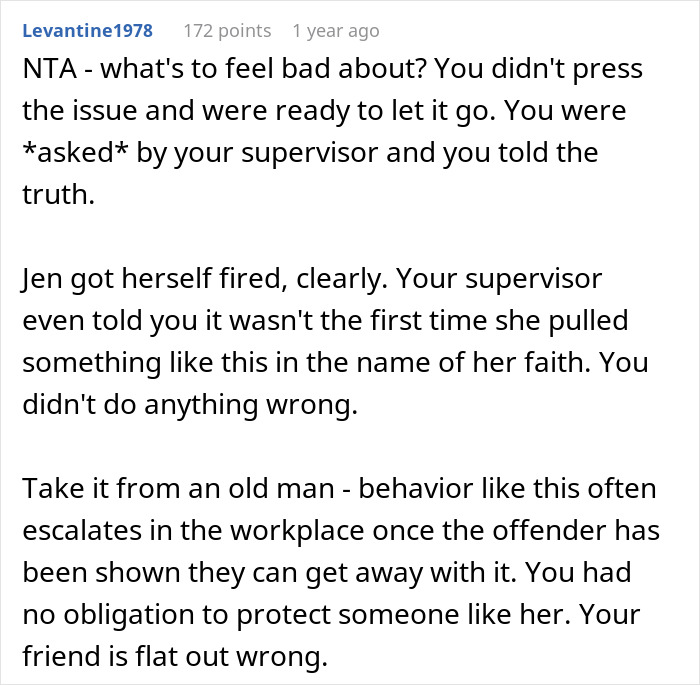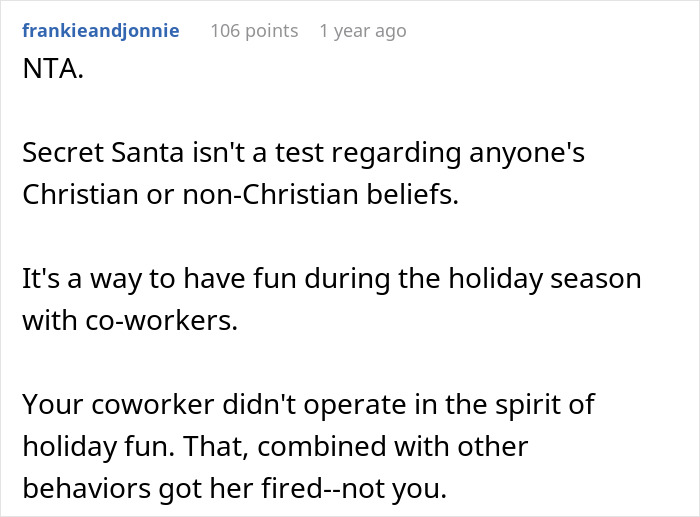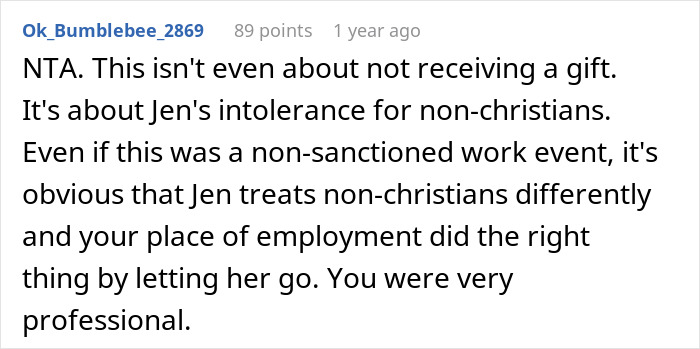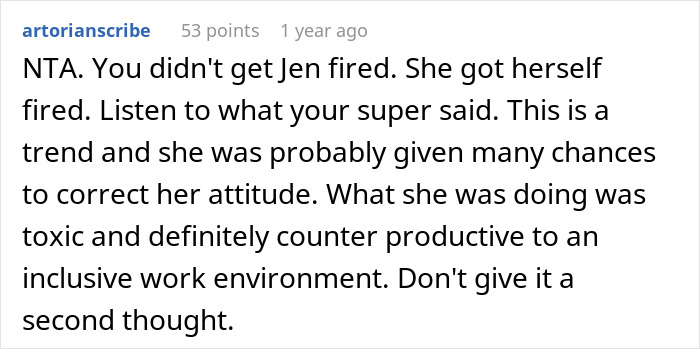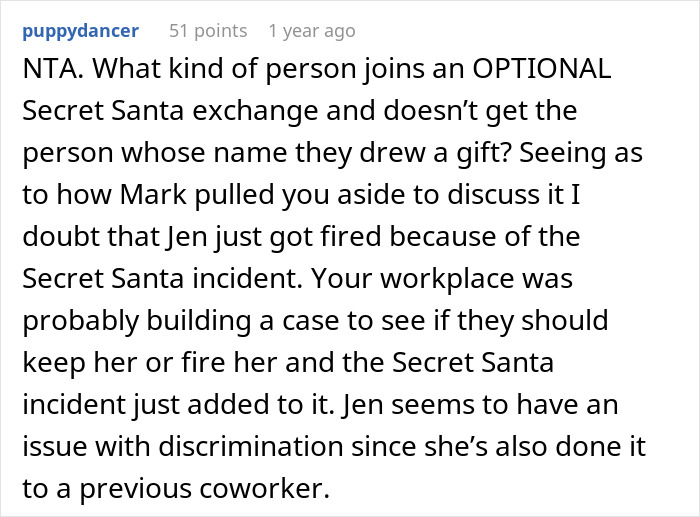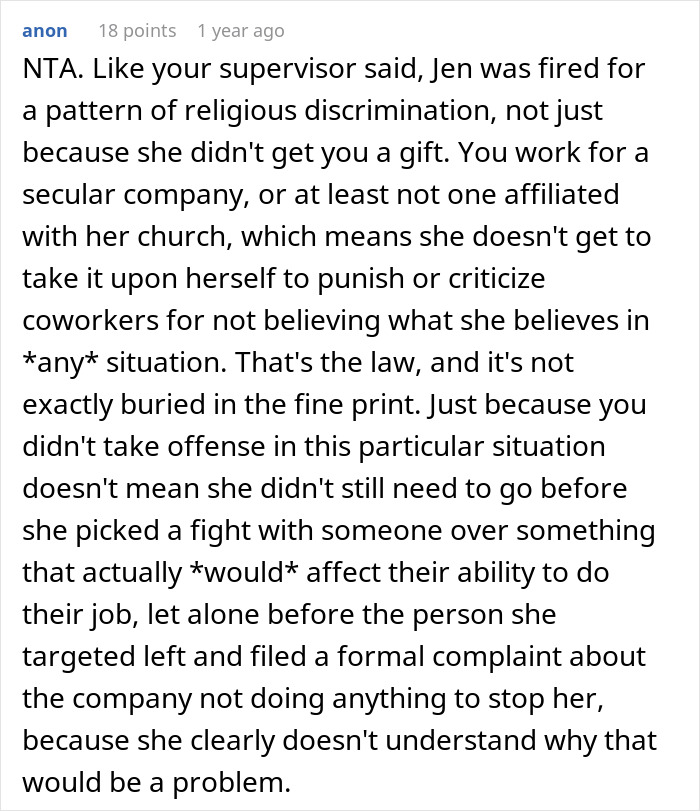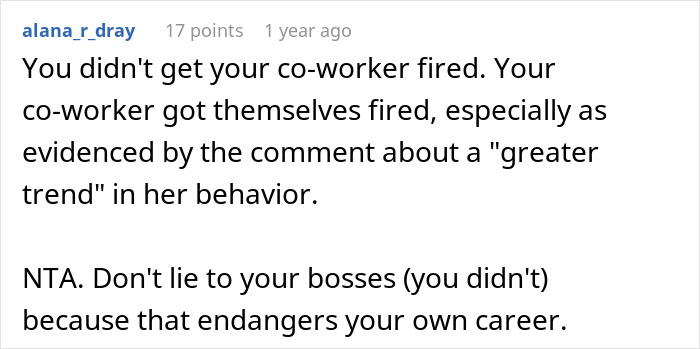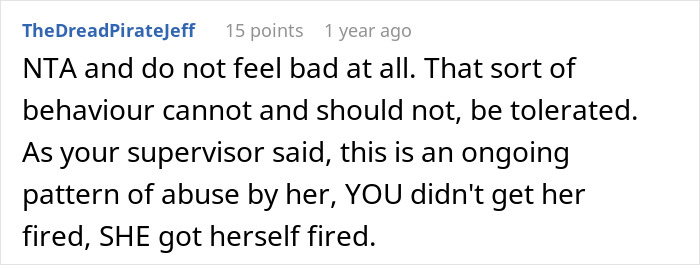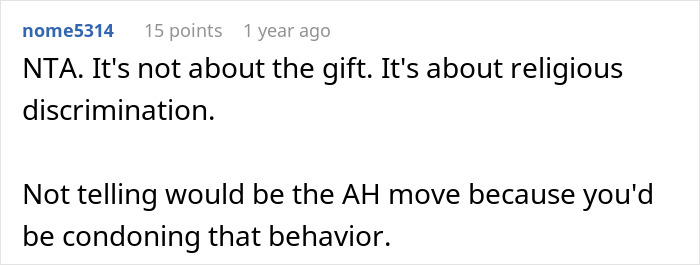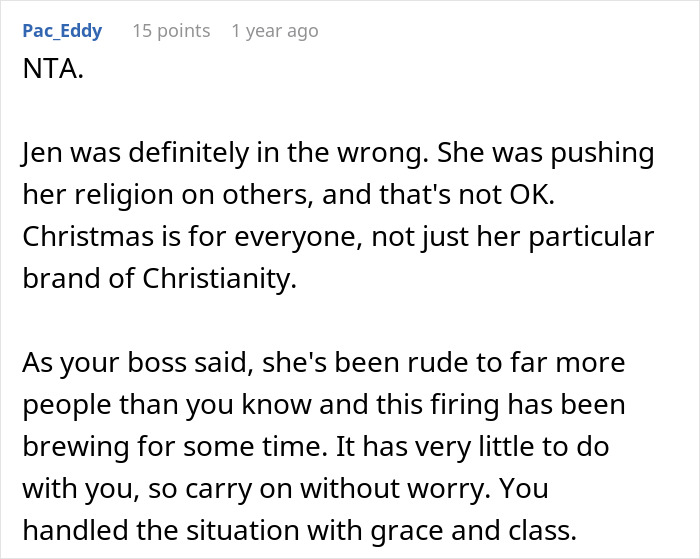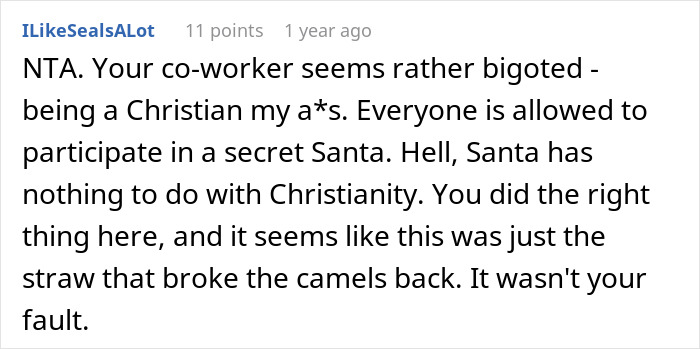Christmas is fundamentally religious, but times have changed. In this day and age, the holiday is more relaxed and commercialized and many people just focus on kindness, generosity, introspection, and gift-giving. So it can be uncomfortable when someone who is overwhelmingly devout suddenly starts pushing their faith on their colleagues.
Redditor u/vox1028 went viral after sharing how his colleague, an extremely religious woman, ended up getting fired because of her behavior during the Secret Santa gift exchange at work. Read on for the full story. Bored Panda has reached out to the author via Reddit and we’ll update the article as soon as we hear back from him.
Exchanging Christmas gifts is something that happens in many companies. Most people are happy to participate

Image credits: Utopix Pictures Pictures (not the actual photo)
One employee shared how his extremely religious coworker behaved when she learned that he’s no longer Christian





Image credits: Tima Miroshnichenko (not the actual photo)

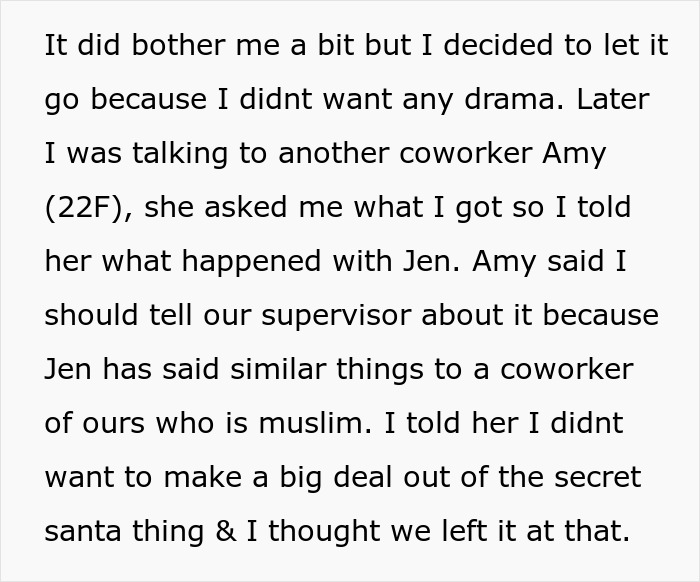
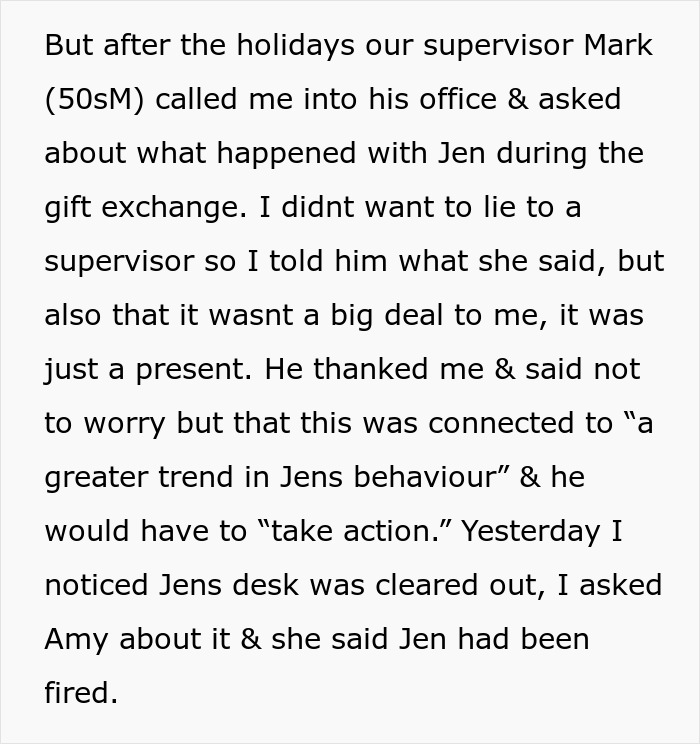
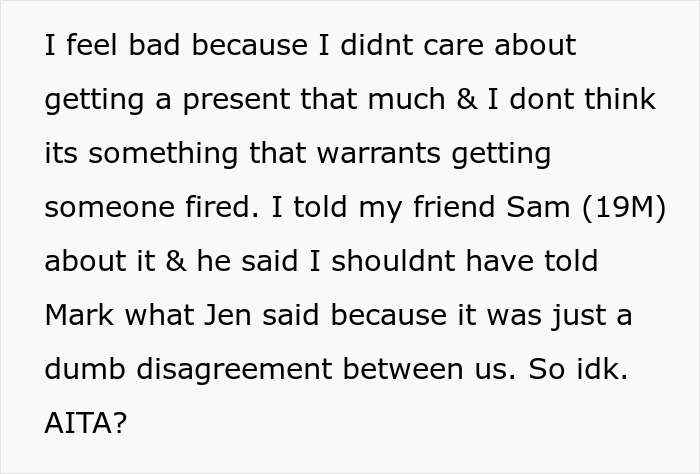
Image credits: vox1028
The woman’s refusal to buy a Secret Santa gift was the very last straw for the company
To be clear, the woman in the OP’s story didn’t get fired just because she didn’t buy a Secret Santa present. That was just the tip of the iceberg of unwholesome behavior at the company.
The author pointed out that, according to his supervisor, ‘Jen’ had been constantly demonstrating unseemly behavior when interacting with her other colleagues. It appeared to be related to religious questions.
While there is nothing wrong with someone embracing their faith at work, there have to be some common sense boundaries. Openly judging and ‘punishing’ others for not having the same beliefs isn’t something that should be allowed to continue.
If someone is willing to be so petty as to refuse to buy an ex-Christian a present for a work gift exchange, imagine all the subtle and overt ways that they’d sabotage someone when it comes to more serious things. Like work projects, deadlines, reviews, etc.
It falls to us to be aware of our own biases and to rein them in when we’re in public settings. At work, you have to try your best to be a polite team player, no matter your personal religious or political beliefs.
Otherwise, no work would get done and all you’d see is HR running around putting out emotional fires and dealing with drama everywhere.

Image credits: Anna Shvets (not the actual photo)
Solving workplace issues starts with talking to the problematic colleague
Dealing with a toxic or problematic coworker can be quite uncomfortable, whatever the specific issue might be. They might treat you rudely, tell inappropriate jokes, constantly dump extra work on you, or do any of a dozen different things that make your life a living hell.
In these situations, it’s worth looking at things strategically. You want to have a private chat with your problematic colleague first. Explain to them what the issue is, and how their behavior is affecting you, and suggest a compromise.
Ideally, you won’t sound like you’re accusing them of anything. Otherwise, they’ll just stick to their version of things and be less willing to hear you out.
But you should be enforcing some healthy boundaries. Stand up for yourself—you shouldn’t have to deal with passive-aggressive or openly mean bullying at your company.
No matter what happens, remember that empathy is a very powerful tool in your arsenal in all areas of your life. So try to hear your coworker out. Get their side of things. Most people simply want to be heard and understood.
By doing that, you’ll be creating a connection between you two and it might just make them become more aware of how their actions and words are affecting others.

Image credits: cottonbro studio (not the actual photo)
If things go off the rails, don’t feel guilty about asking the higher-ups to mediate
However, nobody should be naive enough to think that this will always work. Some people don’t respond to diplomacy. All they understand is authority, power, and consequences.
That’s when you should get your direct supervisor and HR involved. Explain the situation to them, provide some evidence to back up your claims, and let them mediate the entire conflict.
If that doesn’t work, go higher up the corporate food chain until you find someone who is capable of controlling the problematic person and cares enough to do so.
However, if you find that the workplace culture at your office only supports this sort of negativity, it might be time to consider finding work elsewhere. Preferably, somewhere where teamwork and respect matter.

Image credits: Gabrielle Henderson (not the actual photo)
Most readers felt that the author shouldn’t feel guilty about how the situation escalated later

